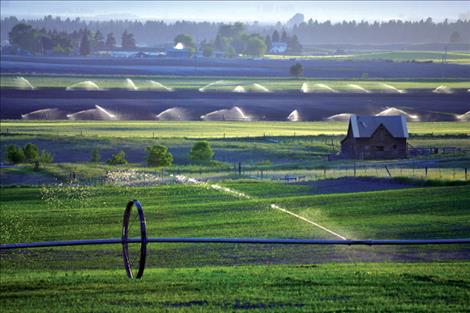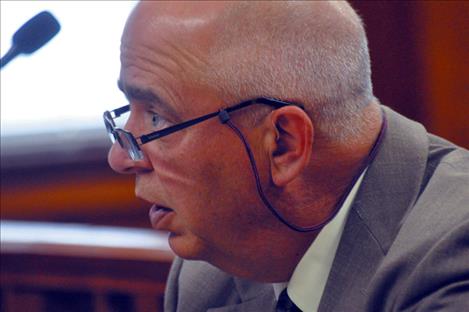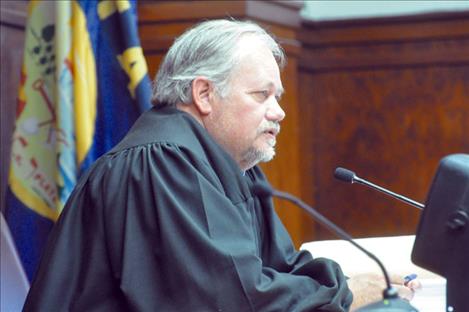Joint board will ask for delay in compact implementation
Hey savvy news reader! Thanks for choosing local.
You are now reading
2 of 3 free articles.
POLSON — In a conference hearing on Tuesday, attorneys for the Flathead Joint Board of Control told Lake County District Court Judge James Manley that the board intends to file for an injunction to halt ongoing implementation of parts of the Confederated Salish and Kootenai Water Compact passed earlier this year by the Montana Legislature.
The impending motion for an injunction was part of a greater roadmap laid out Tuesday for a lawsuit filed by the board in April, immediately following the ratification of the compact by the legislature. The board represents approximately 1,500 irrigators who utilize the Flathead Indian Irrigation Project for crop and stock water. The compact spells out water ownership and a process for future water appropriation on the Flathead Reservation, and if approved by the United States Congress and the tribal government, will settle water rights claims with the Confederated Salish and Kootenai Tribes without thousands of those claims being thrown into a costly litigious battle in state water court. It does not preclude individuals from attempting to make a claim in water court if they wish.
The lawsuit claims the compact’s ratification should have included a two-thirds vote of the Montana Legislature because it grants the state immunity from lawsuits.
The irrigation board’s attorney Bruce Fredrickson told the Judge that the case was narrowly tailored, and would likely not overlap with issues already decided in the numerous court cases in district and federal court that have been fought between the board, the tribes, and the state and federal government in recent years. One other federal case, regarding operation of the irrigation project, is actively being litigated.
“It deals solely with Article 2, Section 18, and I expect that to be the only issue in this case,” Fredrickson said.
Montana Assistant State Attorney General Stuart Segrest said the State of Montana agreed that the district court is the most appropriate place for the case to be heard. He said he would be filing a motion for dismissal of the case.
Fredrickson said the case will not require a jury, witnesses, or expert testimony, and a schedule for having everything filed within 120 days was set.
Manley pointed out that because the case could be wrapped up within the next few months, it might be easier for the FJBC to not file an injunction against compact implementation, which is in the beginning stages.
Fredrickson did not indicate whether his clients would act on Manley’s observation.



















